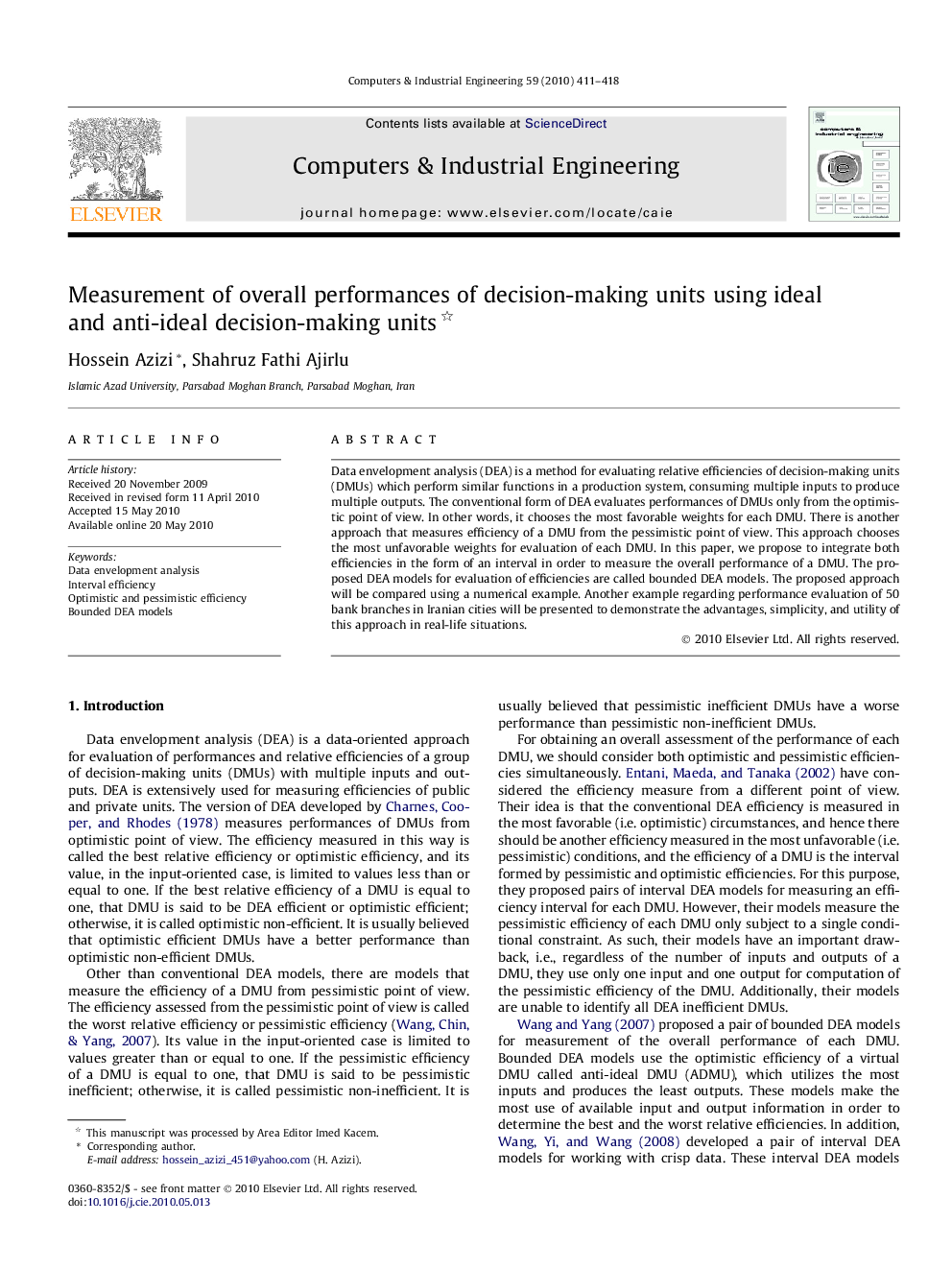| Article ID | Journal | Published Year | Pages | File Type |
|---|---|---|---|---|
| 1134248 | Computers & Industrial Engineering | 2010 | 8 Pages |
Data envelopment analysis (DEA) is a method for evaluating relative efficiencies of decision-making units (DMUs) which perform similar functions in a production system, consuming multiple inputs to produce multiple outputs. The conventional form of DEA evaluates performances of DMUs only from the optimistic point of view. In other words, it chooses the most favorable weights for each DMU. There is another approach that measures efficiency of a DMU from the pessimistic point of view. This approach chooses the most unfavorable weights for evaluation of each DMU. In this paper, we propose to integrate both efficiencies in the form of an interval in order to measure the overall performance of a DMU. The proposed DEA models for evaluation of efficiencies are called bounded DEA models. The proposed approach will be compared using a numerical example. Another example regarding performance evaluation of 50 bank branches in Iranian cities will be presented to demonstrate the advantages, simplicity, and utility of this approach in real-life situations.
